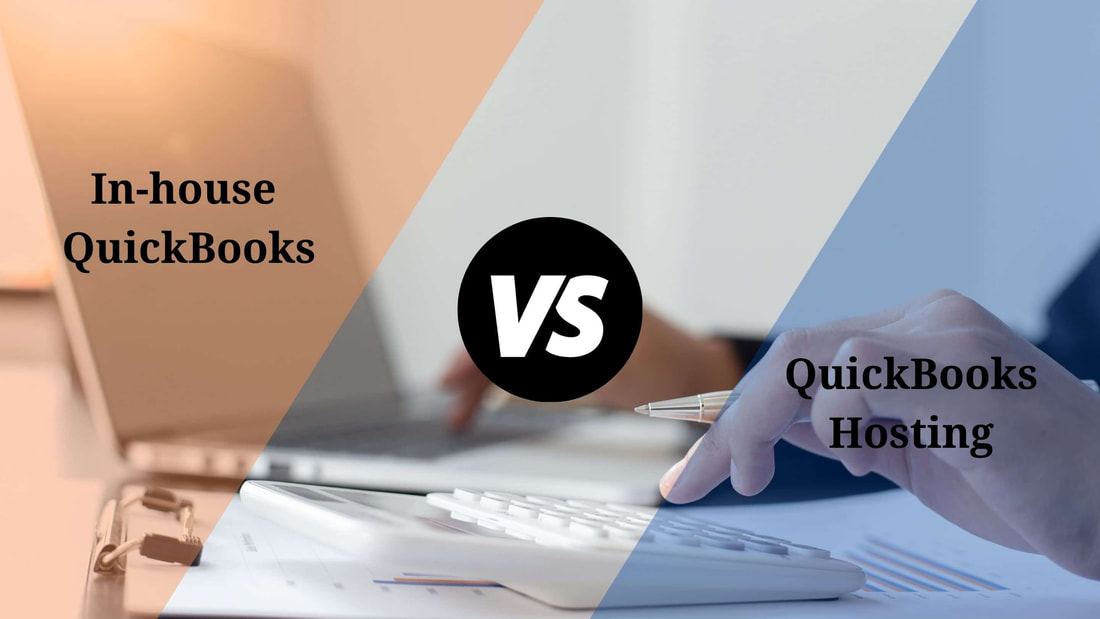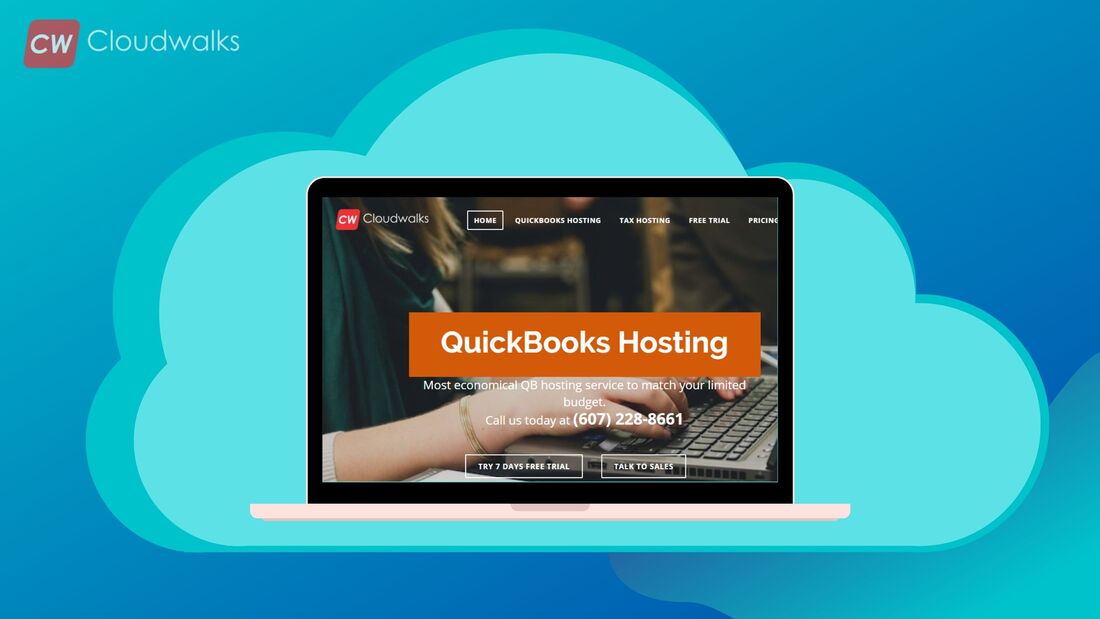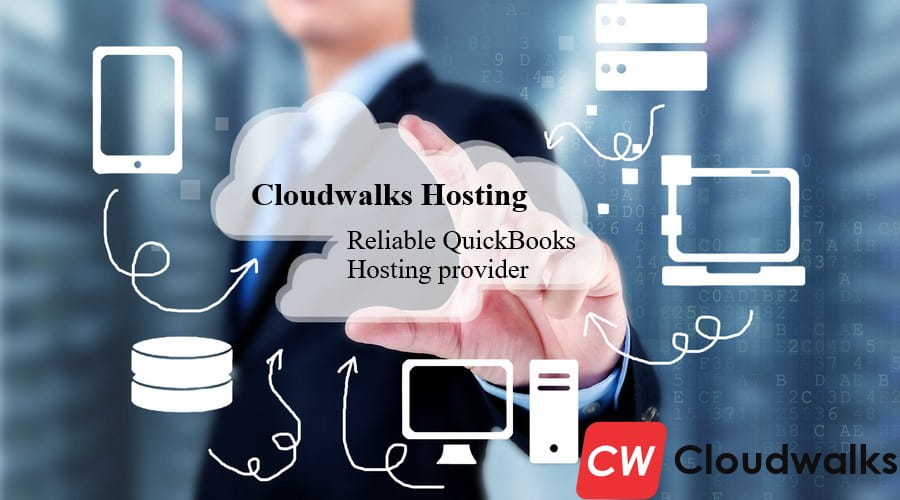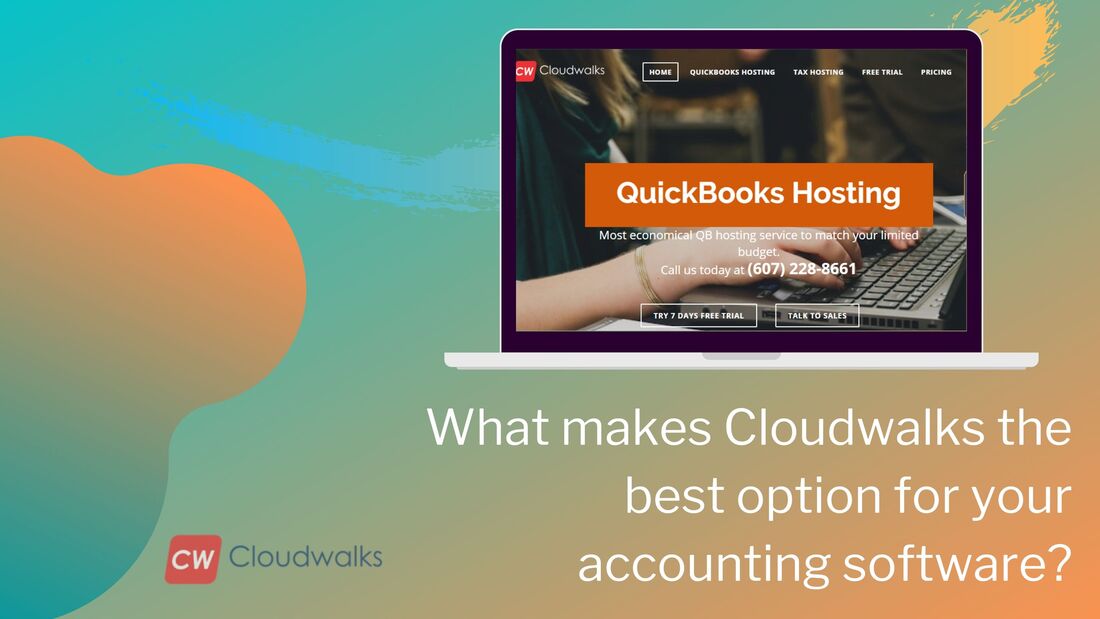Comparing In-House and Third Party QuickBooks Hosting Providers: What You Need to Know
QuickBooks is accounting software designed by Intuit to track business sales, expenses, and cash flow, create and analyze business reports, customize invoices, manage employee information and tax operations.
The software is available in the desktop, online and cloud version, which grants different features relating to accessibility and terms of use.
Hosted QuickBooks
Hosted QuickBooks is a web-based software that allows for unlimited access to organizational files and data by authorized persons. The hosted QuickBooks software grants businesses access to their QuickBooks software over the internet from any location and time. This access is granted without the installation of the software on a device. Users can access their hosted QuickBooks on desktops, tablets, and smartphones. Hosted QuickBooks provides a more accessible version over the traditional QuickBooks software.
In-house QuickBooks
In-house QuickBooks hosting refers to the installation of the QuickBooks software in a local system. Here, access is possible only via the system, which the software was installed. Thus, key access here is limited as users cannot work remotely.
Differences Between In-house and Third-party QuickBooks Hosting ProviderStorage Space and Business Set-up
Small and large businesses have varying floor space in their working environment. While a large firm may have larger floor space for installing IT infrastructure, a smaller business may lack the required space to install IT infrastructure for employee use. Larger companies may consider the cost and space requirements and decide on the kind of QuickBooks software they need. Not only does host QuickBooks save small enterprises to the floor space, it also allows businesses to save money in terms of acquiring a larger office for the IT infrastructure and standby IT professionals to maintain it.
Accessibility
In-house QuickBooks and hosted QuickBooks offer different levels of accessibility. While a third-party provider(hosted QuickBooks) grants access via a cloud server to authorized individuals in any location, time, and device, in-house QuickBooks can only be accessed via the device it is installed in. Therefore, users of in-house hosting QuickBooks can only access the software from a particular device and location. Accordingly, organizations using third-party hosting providers can work remotely and conveniently as access is through the cloud portal.
Data Backup
Businesses can encounter data disasters such as system crashes, theft, and fire outbreak at any time and place. Hence, a comprehensive backup system is required. Businesses using in-house QuickBooks does the backup of data itself. Although data is stored in different locations in massive servers for possible retrieval in case of disasters, the cost of maintaining the continuous backup of data can be high for small businesses. On the other hand, the third-party provider's backup of organizational data in hosted QuickBooks is done multiple times at regular intervals. Thus, data is safe and easily retrievable at any point in time.
IT Resolution Issues and Costs
The maintenance of IT infrastructure in-house QuickBooks is done by highly skilled technicians, which may be expensive to maintain. These IT professionals must always be available to rectify issues and ensure the smooth running of the QuickBooks software. Contrarily, experts are deployed by the service providers to fix problems and maintain the operations of the QuickBooks software. Here, the cost is considerably reduced as they only pay for specified services in most cases.
Additional costs of the regular set up and upgrade of the hardware for in-house QuickBooks may also be expensive for some businesses and the inflexible pricing methods. Customer Support and Uptime
Due to the limited access feature of the in-house QuickBooks version, users are limited in responding to customers from any location and at any time. This can go a long way to reduce customer satisfaction and profit of the business. Additionally, uptime is significantly higher in cloud hosting assets, and installation poses no issues. However, users of in-house QuickBooks carry out the setup themselves.
Conclusion
In-house QuickBooks and third-party QuickBooks hosting provide different levels of accessibility, data security, storage, and cost. While increased accessibility, regular data backup and security is provided in a third-party QuickBooks hosting, customer response time is delayed in an in-house QuickBooks. Businesses should consider optimum performance and availability of resources to choose the best software for their business operations.
0 Comments
Your comment will be posted after it is approved.
Leave a Reply. |
Most useful blogs |
Hosted Applications |
Tax Hosting Services |
Accounting Applications |
ContactAddress
Cloudwalks Hosting, Inc. 40 Exchange Place, Suite 1602 New York, NY 10005 |


 RSS Feed
RSS Feed




